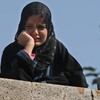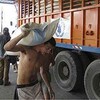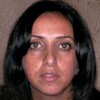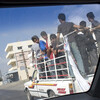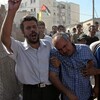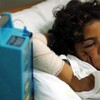
Air strikes cause post-traumatic stress
1 August 2006
Thirteen-year-old Hassan Hamade recently fled Israeli bombing in the city of Nabatiyeh, 60 kilometres south of Beirut. “I cannot sleep at night,” he said. “I still hear the sound of the Israeli warplanes and the explosion of bombs.” Hassan is now at his grandmother’s house in Beirut with the rest of his family. Hassan’s mother, Nibal, said that her two sons and daughter still wake up at night and at times scream in their sleep. “It is not only the children,” Nibal said. “My husband is also finding it hard to sleep at night, and he is always stressed out and edgy.” Richa said the psychiatric disorder can affect anyone who has lived through a conflict situation. Read more about Air strikes cause post-traumatic stress
